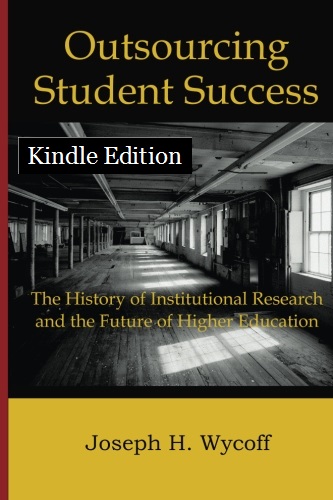| International |
The Bologna Process needs to go back to basics | After 20 years of policy coordination in Europe, there is a need to re-think the main paths forward. In going forward we need to clearly address the fundamental values of higher education: academic freedom, institutional autonomy and how we contribute to the public good.
First research ‘scorecard’ for G20 nations | The Annual G20 Scorecard – Research Performance 2019 was produced by the Institute for Scientific Information or ISI of the Web of Science Group, and features comparable country ‘scorecards’ that provide trend data on “matters salient to a healthy research enterprise”. It is not a ranking. Rather the study looks at the research workforce and research collaboration, output, quality and competitiveness to produce profiles for G20 countries – 19 nations, with the study excluding G20 member the European Union.
We must protect academic freedom and democracy in universities [Bangladesh] | The gradual erosion of autonomy of the universities over several decades is partly to blame for this situation. Increasing government interferences, concentration of too much power in a few hands that are willing to sacrifice the principles of self-organisation and self-governance on the altar of the ruling class, and trampling of freedom of speech—all have contributed to it.
The importance of democratic education | The solution then is not just education per se, but universal education of a certain kind, one that is focused on improving the quality of our democracy. Our current education system does not focus on education in democracy or what we might call democratic education. Nor does it build on elements of democratic culture embedded in our traditions.
| U.S. National |
Point: Help today’s college students as we did for previous generations | Previous generations were propelled forward by free or very low-cost higher education at land-grant universities and robust free college systems in states like California and New York.
Brewing Battle Over Pell Grants | Bipartisan legislation backed by community college and business groups would make certificate programs — even non-credit-bearing courses — as short as eight weeks eligible for Pell Grants. Supporters of the bill, dubbed the JOBS Act, say it would make an overdue change to better tailor the design of the federal aid system to the demands of adult students. It would also exclude for-profit institutions, which have been some of the biggest targets of criticism aimed at the short-term credential sector.
How Rising College Costs and Student Debt Contribute to a Social-Mobility ‘Crisis’ | At a time when higher education’s worth is already under a microscope, soaring college costs and student-debt levels threaten to further undermine public support of the sector. How did higher education get here?
Higher Ed Civil Rights Coalition Releases Equity Prescription | “What we’re trying to communicate here is the way in which there is no one silver bullet,” said Liz King, director of education policy at The Leadership Conference on Civil and Human Rights. “We are looking to bring together a host of policies, which we think taken as a whole will really help to move our higher education system forward and ensure that it is effective and equitable and advances civil and human rights for the diverse student population we have today.”
| U.S. States and Territories |
Alaska’s Data Tell a Familiar National Story | The drama this week in Alaska’s statehouse over vast proposed cuts in higher-ed funding echoes themes from across the nation: shifting financial burdens, weak enrollment numbers, increasing struggles for would-be students, and threats of campus closures.
Deep Cuts in Puerto Rico | [I]n the U.S., another public university system is facing cuts of a similar magnitude, and on a similar, albeit somewhat longer, time frame. The appropriation for the University of Puerto Rico’s operating expenses was slashed by $86 million this year, to about $501 million, following on a $44 million cut the year before that and a $203 million cut the year before that.
Systemwide Shared Governance in Pennsylvania? | Pennsylvania does have a strong statewide union for faculty members, the Association of Pennsylvania State College and University Faculties, or APSCUF. It has traditionally served in a consultative statewide role in the absence of a faculty senate or advisory council, Shapira said. It could continue to do so, at least in part, going forward. But the board chair wants the new shared governance body to be stakeholders in a different kind of conversation outside the sometimes-combative labor-and-management focus that comes with the union relationship.
| Institutional |
Emerging HSIs Step Up to Serve Hispanic, Latinx Students |
With an Hispanic student population of 21 percent, Front Range Community College (FRCC) is what the Hispanic student success organization Excelencia in Education calls an “emerging HSI.” The “emerging” Hispanic Serving Institution (HSI) label makes FRCC one of 328 institutions that are on track to become HSIs, which are colleges or universities that meet a 25 percent threshold of Hispanic student enrollment. As HSIs, institutions become eligible for federal grants that can be used to increase or enhance programs that promote Hispanic student retention and completion.
Challenges for Regional Publics: A Survey of Business Officers | Inside Higher Ed’s 2019 survey went into the field this spring at a time of mixed economic news. The overall U.S. economy continues to strengthen, and that has led to some fairly positive trends in state appropriations for public higher education institutions. Federal spending on financial aid rose again last year, and House Democrats are pushing more big increases. But the overarching demographic and financial trends that are roiling the country — especially in the Northeast and Midwest — continue to take their toll on small, less wealthy and rural colleges, with several private institutions closing in the first half of 2019.

